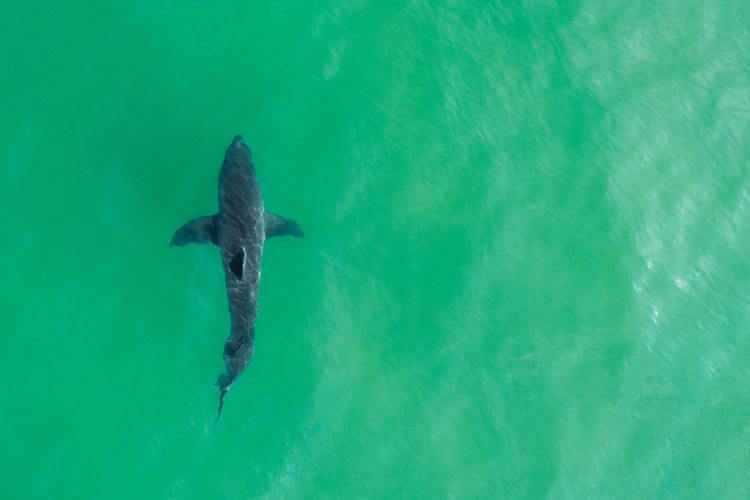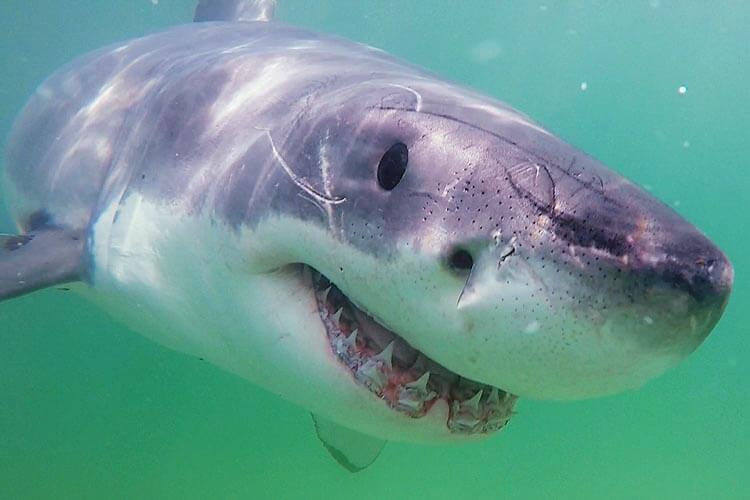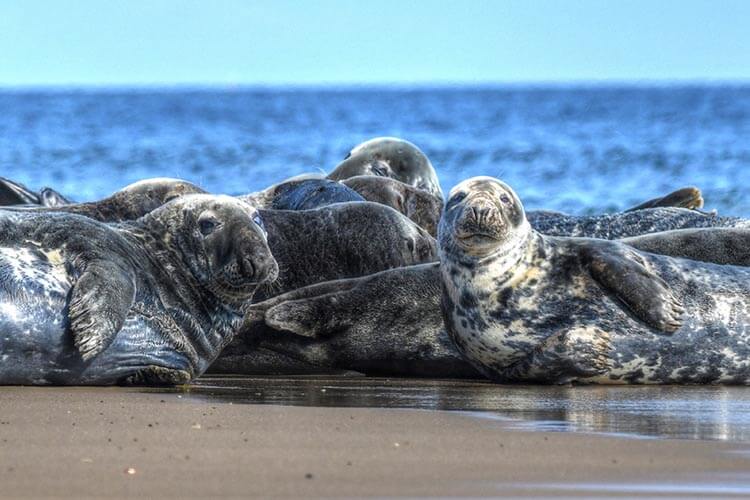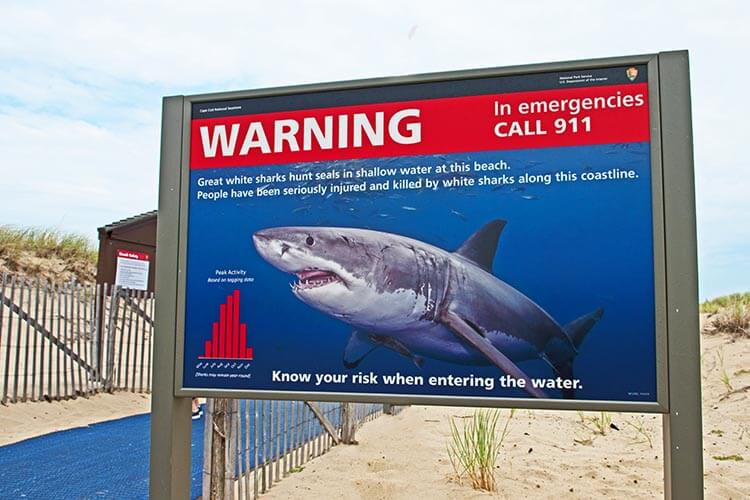
Cape Cod, off the eastern coast of Massachusetts, has been confirmed as a hot spot for a thriving population of great white sharks, according to a new study.
The study, published in July 2023 in the Marine Ecology Progress Series, was the first of its kind to take place around Cape Cod, and appears to confirm reports from Ocearch scientists earlier in the year, who stated that the great white population of the northwestern Atlantic was ‘booming’.
The data were collected between 2015 to 2018, during which time a photographic ‘capture-recapture’ survey identified 393 individual great white sharks. Capture-recapture surveys are used to estimate the overall number of animals within a population based on the proportion of individuals seen repeatedly within separate samples.
You may also like:
Using population abundance modelling techniques, specially adapted to take into account the highly migratory nature of great whites, the researchers were able to estimate the number of Cape Cod sharks at around 800 individuals.
Like many other species of large shark, populations of the great white shark have been in global decline for more than half a century, and for a number of reasons.
Caught as bycatch, hunted for their fins, and targeted by shark control programmes and recreational fishers alike, great white populations are thought to have declined by as much as 90 per cent in some locations.

Currently listed as Vulnerable by the IUCN List of Threatened Species, there has been a gradual recovery of great whites in some regions, following protective measures implemented by the species’ addition to Appendix II of the Convention of International Trade in Endangered Species (CITES).
The Cape Cod great white population has been showing signs of recovery since the turn of the 21st century, almost certainly a result of a corresponding increase in the region’s grey seal population.
Hunted virtually to extinction by the middle of the 20th century, as few as 30 grey seals were recorded along the entire, 230-mile-long, coast of Maine, to the north, when they were first afforded protection by the American Marine Mammal Protection Act in 1972. Today, Cape Cod’s population is estimated to be as high as 30,000 – 50,000 animals.

While undoubtedly good news for the shark and seal populations (when they’re not being eaten by the sharks, that is), the re-emergence of both species has raised concern over their potential threat to the estimated 4 million tourists who flock to the Eastern Seaboard during the summer months, and local fishers who have complained that fish stocks have been diminished as a result.
Accurate population estimates, together with tracking data, are vital for the long-term conservation of great white sharks. Understanding how the sharks are distributed during the year allows for the creation of valid mechanisms to ensure their protection, and, following three fatal attacks between 2017-2019, that of human visitors also.

At present, the sharks are most numerous during the summer months, and although the great white is able to raise its body temperature above that of its surroundings, it must disperse into warmer waters during the cold northern winter. Rising ocean temperatures, however, may extend the shark’s presence around Cape Cod in the future.
‘Over the course of the past 10 years, white sharks have come back to Cape Cod to feed on the recovering seal population,’ said Megan Winton, lead author or the new study and member of the Atlantic White Shark Conservancy, in an interview with Good Morning America.
‘So they’re now coming in really close to shore. There’s certainly no question that as the oceans continue to warm and as water temperatures continue to rise things will start to change. And it could be that, not so far in the distant future, white sharks are more of a long-term presence – they might start showing up here earlier and they might stay for longer.’
‘An open spatial capture−recapture framework for estimating the abundance and seasonal dynamics of white sharks at aggregation sites’ by Megan V Winton, Gavin Fay, and Gregory B Skomal is published in Marine Ecology Progress Series
- Crown-of-thorns outbreak developing in northern Great Barrier Reef - 29 January 2026
- Six bodies recovered in search for missing Philippines divers - 27 January 2026
- DIVE’s Big Shot Light and Shadow – win an Aggressor Adventures liveaboard trip - 23 January 2026



